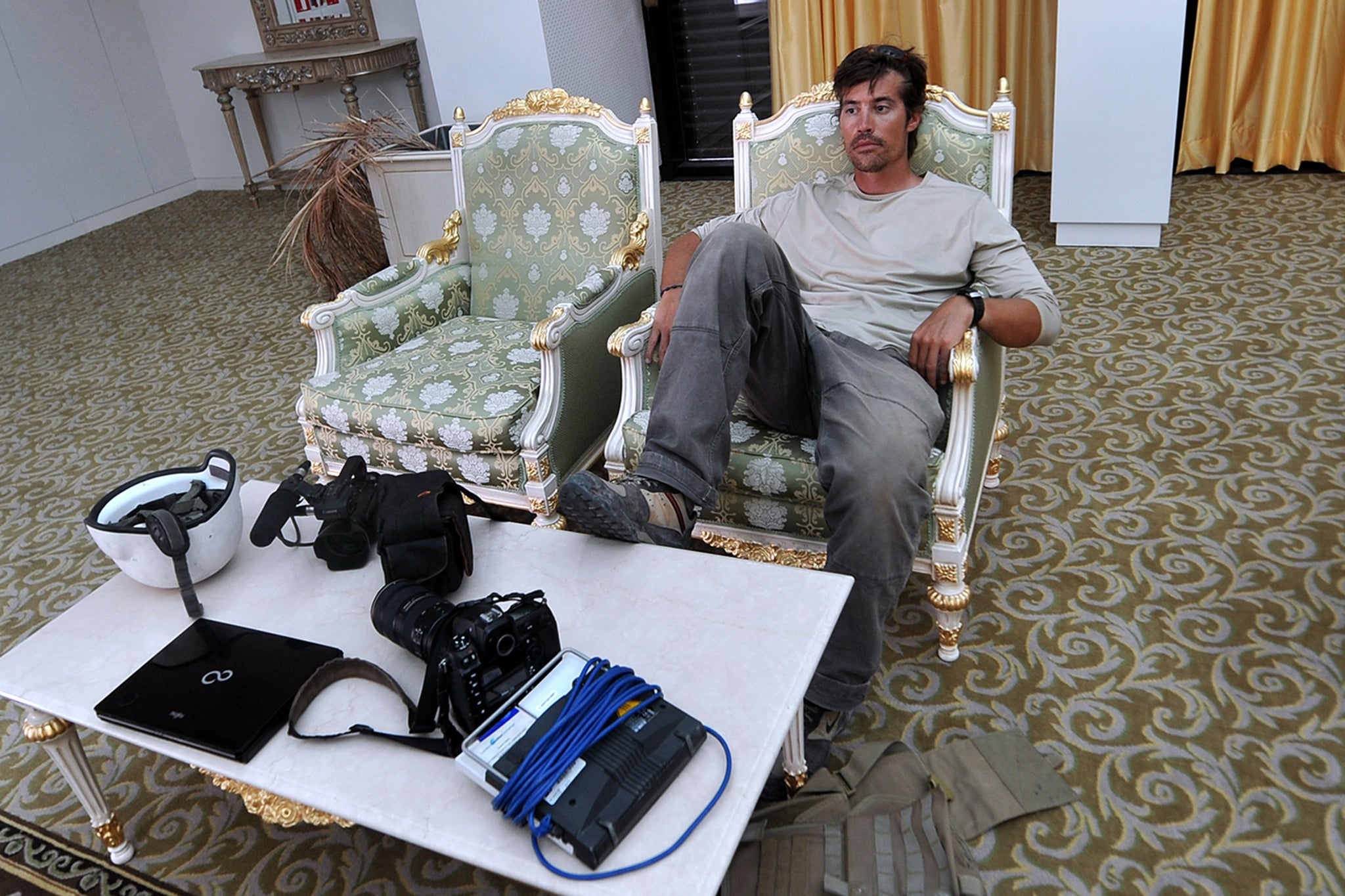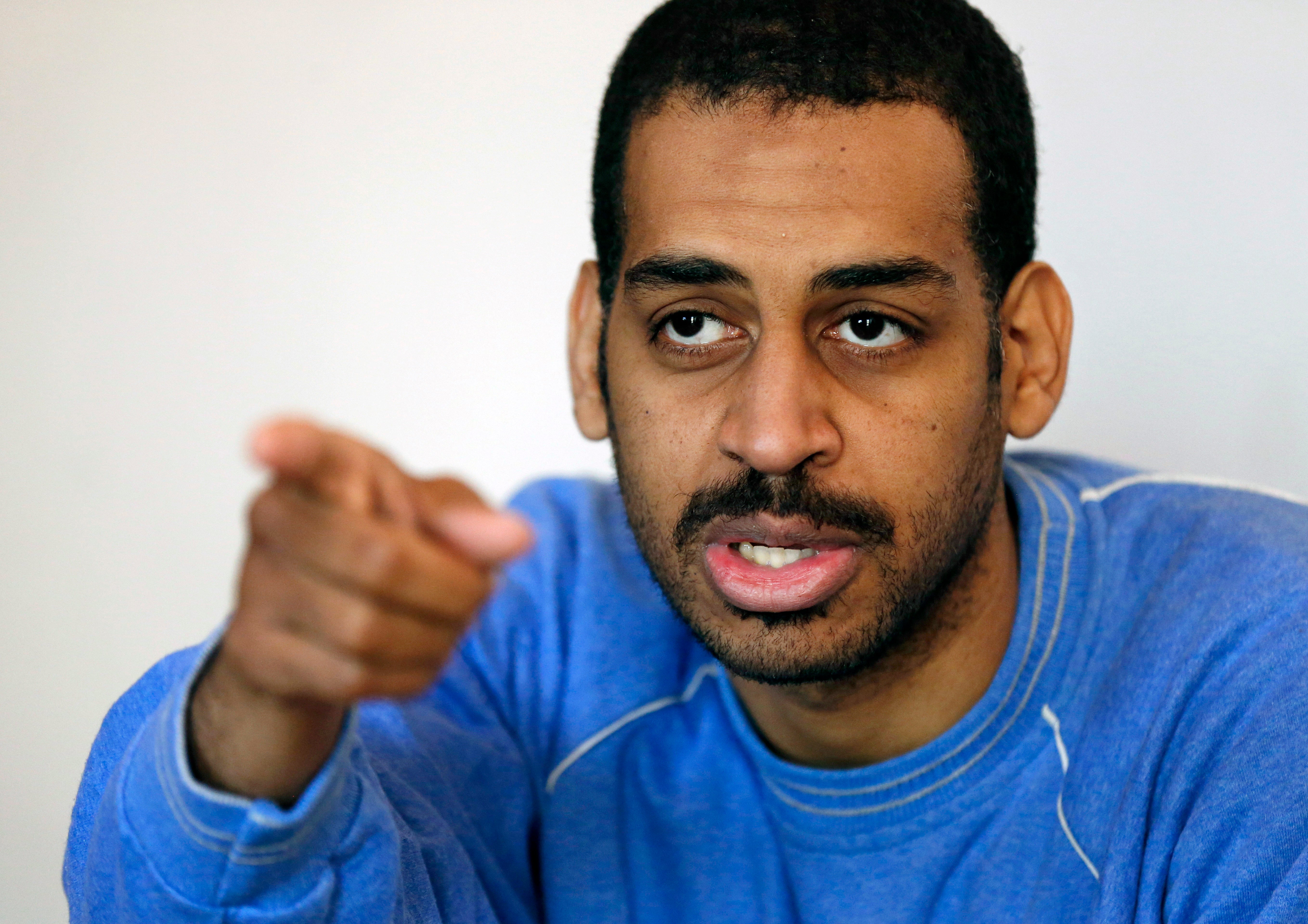Beheaded by a jihadi Beatle – a mother’s true story
When Jim Foley was brutally murdered in 2014 by one of the British terrorists known as the ‘jihadi Beatles’, his grieving mother struggled to put into words the tragedy she endured. A new devastating memoir, a collaboration between Diane Foley and novelist Colum McCann, captures some of the pain, says Robert McCrum


Hope and history never rhyme, and literature is humanity’s riposte to the tragedy of events. In Heart of Darkness, Conrad’s controversial but still classic response to an apocalypse in the Belgian Congo, “The horror! The horror!”, becomes a strange, unearthly kind of consolation for the terrible deeds done in the name of the civilising mission in Africa.
Colum McCann is an acclaimed novelist (Let the Great World Spin, TransAtlantic, Apeirogon) who has chosen to approach our own century’s heart of darkness in the Middle East through memoir, not fiction.
American Mother is the fruit of his collaboration with Diane Foley, whose search for meaning 10 years after her son’s horrifying execution in August 2014 becomes a testament to the power of empathy and moral courage.
Who can forget the beheading of James (Jim) Foley? A cobalt sky, the desert sands, and the black hood. The orange jumpsuit, a kneeling hostage, and the flash of the knife.
Finally, the horror of this colossal wreck: Foley’s head planted on the back of his mutilated torso. McCann and Foley claim that this video of Foley’s killing became the second most recognisable image of its time, after the fall of the World Trade Centre towers on 9/11.
McCann is a ghost, but he’s no hack, and shares full credit with Foley. Not only does he capture her voice, he also shapes her story with sympathy, economy and discretion, introducing her to the reader through a moving third-person account of Diane’s meeting with her son’s killer before she takes up the narration of her own journey to forgiveness and redemption.
American Mother falls into two, equally compelling, halves: the torment of Diane’s parenthood, followed by the “chest-thumping shock” after Jim was taken hostage by the Isis group known as “the jihadi Beatles” in November 2012. We read how “the days fell like dominoes” while this brave, God-fearing woman battled to get her son back home, in vain.

Diane Foley is a mother coming to terms with the untimely loss of her child, an experience for which the English language has no word. In her search for an understanding of his fate, Foley does not blink. Her steady candour resounds through McCann’s narrative like a trumpet. Once her boy is lost to her, she confesses, “I know I did not do enough to stop him.” These words become the harrowing motif of an ageless lament, her regret for the missed opportunities of an unfinished mother-son relationship.
When she finally meets her child’s killer, she wants to tell him that the man she’s lost was a “journalist and activist”, a troubled son who “gave his life trying to expose the suffering of the Syrian people”. But the more she tells her story, the more she realises that “there’s no such thing as a singular truth”. Families are complicated; the dreams of her young life as an American mum would be dashed. “Little did any of us know how the world would change.”
When her son takes off into the world, she admits the inevitable failure of their relationship: “A mother never knows – never really wants to know...” Discretion also comes into play with her memories. She concedes a “tendency to over-saint her child”. Once he had gone, she regrets that he’d “spent much of his younger years in a fog of good intent”. Only now, telling her story, is she “still getting to know him”.
In her search for an understanding of his fate, Foley does not blink. Her steady candour resounds through McCann’s narrative like a trumpet
Foley describes how, as a mother, she watched her son find his vocation, with intimations of dread: “He wanted something new, something fresh, something authentic.” He really wanted to get to the front line, “the holy grail for journalists.” It’s no surprise – after this preamble – to discover that Jim Foley had become hooked on violence, “a strange sort of force that you are drawn back to.”
It becomes the reader’s shock to realise that she’s lost her son for good. A snatched phone call; a promise undone. “I never heard his voice again.” In the second half of American Mother, McCann takes us into the heart of darkness with the kind of non-fiction that only a novelist could achieve.

His Diane Foley is a woman of faith who says, “My solace has always come in God”, but that’s a language few readers will share. McCann breathes life into a dry ritual by focusing on her solitude: neglected by the White House, walled-off by lawyers, talking to her son in her head, she writes: “I felt very much alone.” To one question – “Am I going mad?” – there was no answer. Obama, she recalls, was “rather cold”.
The breaking news was not good. Her son had been seized by four young Islamic fundamentalists from east London who spoke in Cockney accents, wore balaclavas, dressed in black, and were notorious for their savagery. Their hostages, led by Jim Foley, bonded over storytelling, lectures on sailing and – incredibly – games of Risk. They were so hungry they ate banana peel.
A week before Jim’s execution, Diane decided she must surrender to God, trusting in the Holy Spirit. “I never watched the video of the beheading,” she says, “and I never will.” With her son’s death, she hoped for “a new beginning”.
Ten years on, with no idea where his body is, she’s still searching. McCann defines her as “an American mother”. This, he declares, is not a story that often gets told. Worse, “the story sometimes forgets her”. But not always.

When she met her son’s killer, Alexanda Kotey, he took her hand. Why, some witnesses asked. He replied: “She’s like a mother to us all.” At such moments this outstanding document of personal witness exhibits the qualities of a great novel.
American Mother fulfils a deep, redemptive purpose, but it has one omission. We close this subtle, and unforgettable, memoir with many unanswered questions about the novelist and his grieving collaborator, whose portrait McCann must take much credit for.
I would have liked a fuller insight into the dynamics of the relationship between ghost and ghostee. An afterword for another edition perhaps?
‘American Mother’ is published by Bloomsbury
Subscribe to Independent Premium to bookmark this article
Want to bookmark your favourite articles and stories to read or reference later? Start your Independent Premium subscription today.


Join our commenting forum
Join thought-provoking conversations, follow other Independent readers and see their replies
Comments